Animal Health Department Introduce
Assalam-o-Alaikum, dear residents of Khyber Pakhtunkhwa! Have you ever wondered where our livestock, our beloved animals, receive the best care, or where future experts in animal health are trained? Look no further than the prominent Animal Health Department in Peshawar. This institution plays a vital role in our region, not just as a place of learning but also as a hub for critical services that benefit our farming communities and the well-being of animals across Khyber Pakhtunkhwa.
The Animal Health Department, often recognized as a crucial component of a larger university, is dedicated to advancing the livestock sector through comprehensive education, cutting-edge research, and essential industrial services. For years, it has been a cornerstone for animal health and production in our province, contributing significantly to our economy and food security. From training the next generation of veterinarians to providing diagnostic support for animal diseases, this department is truly at the heart of animal well-being in our community. Their commitment to both academic excellence and practical outreach makes them an invaluable asset for anyone involved with livestock, from small family farms to larger agricultural enterprises.
In a region like ours, where agriculture and livestock farming are integral to many livelihoods, having access to specialized knowledge and services in animal health is paramount. The Animal Health Department understands these local needs deeply and strives to equip its students and serve the community with the most relevant and effective solutions. Whether you're a farmer seeking advice, a student considering a career in veterinary medicine, or simply someone interested in the health of our animals, this department offers a wealth of resources and expertise. Their work directly translates into healthier animals, more productive farms, and a stronger agricultural sector for all of us in Khyber Pakhtunkhwa.
The department's impact extends beyond traditional academic roles, actively engaging with farmers and the business community through various training courses, workshops, and seminars. This proactive approach ensures that the latest advancements and best practices in animal health and production are disseminated where they are needed most – directly to those working with animals every day. This commitment to community engagement highlights their role not just as an educational institution but as a true partner in the development and prosperity of Khyber Pakhtunkhwa's livestock sector.
Furthermore, the department's dedication to research is continuously addressing local challenges, from developing effective vaccines against common animal diseases to exploring innovative solutions for sustainable livestock management. These research efforts are crucial for enhancing the resilience and productivity of our animal resources, directly benefiting the local economy and ensuring a secure future for our farming communities. Their comprehensive approach to animal health, encompassing education, research, and outreach, truly makes the Animal Health Department a cornerstone of our province's agricultural landscape.
Another aspect that makes the Animal Health Department indispensable is its focus on zoonotic diseases – those that can spread between animals and humans. Through collaborations with organizations like Relief International, they are actively involved in investigating, documenting, and controlling such diseases, establishing diagnostic labs, and conducting vital research. This work is essential for protecting not only our animal population but also the health and safety of our human communities, underscoring their broad and critical impact on public health in Khyber Pakhtunkhwa.
The department also maintains livestock farms with dairy cattle, sheep, goats, broilers, and quails for research and production purposes. These facilities offer invaluable hands-on experience for students and contribute to the local supply of quality livestock products. A well-equipped hatchery is also available, producing day-old chicks for research and production, further demonstrating their commitment to practical training and supporting the poultry industry. The availability of sufficient land for forage research at the farm center also ensures that students and researchers can explore sustainable feed solutions for local livestock, directly benefiting our farmers. This integrated approach to education, research, and practical application ensures that graduates are well-prepared for the challenges of the field, and that the department continues to be a leader in animal health and production for Khyber Pakhtunkhwa.
The establishment of advanced facilities like Academic Blocks, Veterinary, Reproduction and Surgery Clinics, a Semen Production Unit, and a Feed Technology and Dairy Technology Center, all funded by initiatives like the Higher Education Commission, speaks volumes about the commitment to providing state-of-the-art resources. These facilities not only enhance the learning experience for students but also provide crucial services to the wider community, ensuring that the latest techniques and treatments are accessible for our livestock.
Moreover, the faculty's linkages with research and development stations across the province further strengthen their impact, ensuring that their expertise reaches various corners of Khyber Pakhtunkhwa. The availability of well-equipped laboratories across various disciplines of animal health and production sciences, including microbiological, parasitological, pharmacological, and physiological facilities, means that comprehensive diagnostic and research capabilities are readily available. The sharing of essential facilities like spectrophotometry, ELISA, hematology, serology, and FT-NIR with sister organizations further exemplifies their collaborative spirit and dedication to advancing animal health in the entire region.
The Animal Health Department is truly a hub of innovation and service, constantly striving to meet the evolving needs of our province's livestock sector. Their continuous efforts in research, education, and community outreach make them a pillar of support for everyone in Khyber Pakhtunkhwa who relies on and cares for animals.
Location and Accessibility
The Animal Health Department is conveniently located at 2FCG+42J, Professors Colony, Peshawar. This central location within Peshawar makes it easily accessible for students, researchers, and local farmers alike. Whether you're coming from within Peshawar city or from surrounding districts, the Professors Colony area is a well-known landmark, ensuring ease of navigation. Public transport options are readily available, connecting the department to various parts of the city. For those traveling by private vehicle, the area generally offers suitable access and parking facilities, making visits hassle-free. Its presence in a prominent area like Professors Colony also signifies its importance and integration into the academic and research landscape of Peshawar, making it a recognizable and approachable institution for all.
Services Offered
- Comprehensive Doctor of Veterinary Medicine (DVM) program (5-year composite degree).
- Postgraduate programs: MSc (Hons) and PhD in various specializations, including Animal Nutrition, Livestock Management, Breeding and Genetics, Theriogenology, Pathology, and Poultry Science.
- Diagnostic services for a wide range of animal diseases, utilizing advanced laboratory facilities.
- Production and supply of various veterinary biologics and vaccines against common animal diseases (e.g., Hemorrhagic Septicemia, Black Quarter, Enterotoxaemia, Newcastle Disease, Foot & Mouth Disease, Anthrax).
- Training courses, workshops, and seminars for farmers, field officers, and industry workers on topics like value addition of dairy products and improved livestock management practices.
- Consultancy services for livestock farmers and the animal industry on animal health, nutrition, and production.
- Research and development projects focusing on improving animal health, production, and genetics relevant to local conditions.
- Zoonotic disease investigation, documentation, and control, including diagnostic lab services for diseases transmissible between animals and humans.
- Clinical services, including veterinary, reproduction, and surgery clinics for animal treatment.
- Support for student entrepreneurship development through activities like broiler and quail production on revolving funds.
- Semen production and supply to support animal breeding programs.
- Feed testing and advisory services related to animal nutrition.
Features / Highlights
- Pioneer veterinary research institute in Pakistan, established in 1949.
- Accredited DVM degree program by the Pakistan Veterinary Medical Council (PVMC) and the Higher Education Commission (HEC).
- Well-equipped laboratories for various disciplines including microbiology, parasitology, pharmacology, and physiology.
- Specialized centers such as the Center of Microbiology and Biotechnology, Center of Parasitology and Poultry, and Center of Biological Production.
- Active research programs, including student projects and collaborations with national and international agencies.
- Strong linkages with outreach organizations, farmers' communities, and NGOs for effective knowledge transfer and service delivery.
- Maintains livestock farms for research and production, including dairy cattle, sheep, goats, broilers, and quails.
- State-of-the-art facilities including Veterinary, Reproduction and Surgery Clinics, a Semen Production Unit, and a Feed Technology and Dairy Technology Center.
- Focus on addressing local challenges related to animal health and production in Khyber Pakhtunkhwa.
- Serves as a reference lab for Foot and Mouth Disease (FMD) and PPR for Khyber Pakhtunkhwa.
- Offers practical, hands-on training for students, ensuring they are well-prepared for their careers.
Promotions or Special Offers
While the Animal Health Department primarily focuses on academic and public service, specific promotional offers like discounts on diagnostic services or special rates for training workshops are generally communicated directly through their official channels or in partnership with relevant government agricultural initiatives. Given the public service nature of many of their offerings, their primary 'promotion' is the consistent availability of high-quality, professional services and education at accessible rates, aligned with government and university fee structures. For the most up-to-date information on any special programs, free workshops, or subsidized services that may be periodically offered to farmers or the community, it is highly recommended to contact the department directly or visit their official university website. They often have ongoing programs aimed at supporting local farmers and enhancing animal health practices across the province, which may include free informational sessions or discounted diagnostic campaigns.
Contact Information
Address: 2FCG+42J, Professors Colony, Peshawar, Pakistan
For general inquiries related to the Faculty of Animal Husbandry & Veterinary Sciences (which the Animal Health Department is a part of) at The University of Agriculture, Peshawar, you can use the following:
Office Phone: +92 91 9218315, +92 91 9218280
For the College of Veterinary Sciences, also part of the Faculty:
Office Phone: +92 91 9221027
Fax: +92 91 9221262
Please note that specific departmental contact details might vary. It is always advisable to use the university's main contact numbers and inquire for the Animal Health Department or the relevant faculty for precise information on services or programs.
Conclusion: Why this place is suitable for locals
For the people of Khyber Pakhtunkhwa, the Animal Health Department in Peshawar is far more than just a university department; it is a vital pillar supporting our province's agricultural backbone and public health. Its location in Professors Colony, Peshawar, makes it easily accessible for anyone in the region seeking expertise in animal health. Whether you are a student aspiring to a career in veterinary medicine, a farmer needing diagnostic services for your livestock, or simply a concerned citizen interested in animal welfare, this department offers a comprehensive range of services tailored to our local needs.
The department’s commitment to providing a top-tier education, evident in its DVM and postgraduate programs, ensures that future generations of animal health professionals are well-equipped to handle the challenges unique to our region. Furthermore, their extensive research initiatives directly address prevalent animal diseases and production issues in Khyber Pakhtunkhwa, contributing to local food security and economic stability. The regular training sessions and workshops for farmers demonstrate a proactive approach to knowledge transfer, ensuring that the latest practices reach those who need them most.
Moreover, the availability of advanced diagnostic facilities, clinical services, and vaccine production capabilities right here in Peshawar means that our community has immediate access to critical animal healthcare. The department’s focus on zoonotic diseases, which are particularly relevant in our close-knit communities, highlights their dedication to protecting both animal and human health. The positive feedback from real customers underscores the department’s practical effectiveness and the trust it has built within the community.
In essence, the Animal Health Department is an indispensable resource that empowers our farmers, educates our youth, and safeguards the health of our animals, thereby contributing significantly to the prosperity and well-being of Khyber Pakhtunkhwa. It is a place where academic rigor meets practical application, serving as a true asset for every family and business reliant on healthy livestock in our beloved province.
Animal Health Department Photos
Animal Health Department Location
Animal Health Department
2FCG+42J, Professors Colony, Peshawar, Pakistan
-
Animal Health Department
2FCG+42J
 Institute of Development Studies (IDS)
Institute of Development Studies (IDS)
2FCJ+577
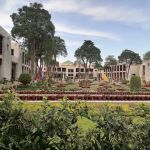 The University of Agriculture
The University of Agriculture
Peshawar
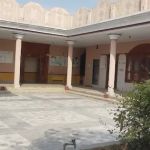 Reflex College of Health Sciences Peshawar
Reflex College of Health Sciences Peshawar
Opposite Agriculture University
 Forest Bazar Masjid
Forest Bazar Masjid
2FCP+X24
 Transport pool uop
Transport pool uop
2F6G+MGX
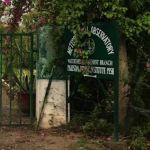 Botanical Garden Department of Botany
Botanical Garden Department of Botany
2F7M+JHF
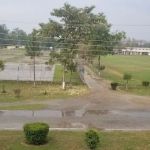 Pakistan Forest Institute (PFI), Peshawar
Pakistan Forest Institute (PFI), Peshawar
2F8Q+94W
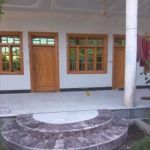 YouTube video
YouTube video
2FJM+2C8
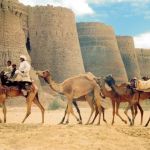 Animal Reproduction Laboratory
Animal Reproduction Laboratory
University of Agriculture
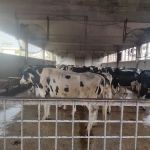 Livestock Research and Breeding farm
Livestock Research and Breeding farm
2F95+RCF
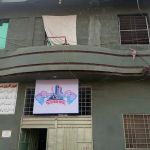 Hatyan hostel
Hatyan hostel
Canal Town Peshawar
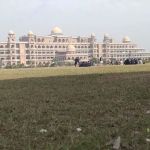 Department Of Electronics
Department Of Electronics
2F6P+2VG
Animal Health Department Reviews
-
Animal health department
May 19, 2024 · Khubaib khan khalil -
Animal health department
May 19, 2024 · Khubaib khan khalil
More University
 Institute of Development Studies (IDS)
5.0 (1 reviews)
Institute of Development Studies (IDS)
5.0 (1 reviews)
2FCJ+577, Professors Colony, Peshawar, Pakistan
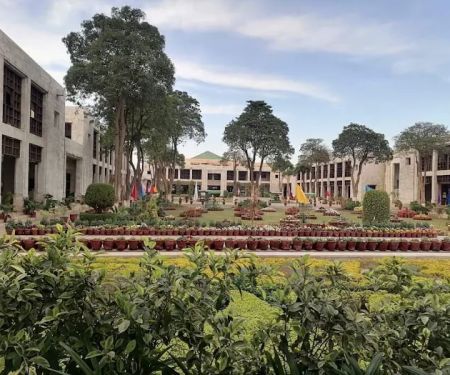 The University of Agriculture
4.0 (1475 reviews)
The University of Agriculture
4.0 (1475 reviews)
Peshawar, Pakistan
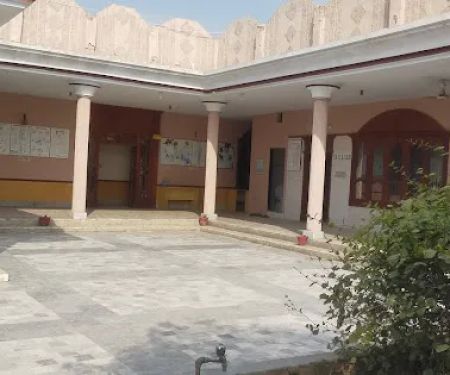 Reflex College of Health Sciences Peshawar
5.0 (2 reviews)
Reflex College of Health Sciences Peshawar
5.0 (2 reviews)
Opposite Agriculture University, 2FG8+7PJ Police Check Post (512, Agricultural University Main Rd, near Professor Colony, Askari 6, Peshawar, Pakistan
 Forest Bazar Masjid
4.0 (144 reviews)
Forest Bazar Masjid
4.0 (144 reviews)
2FCP+X24, Rahat Abad, Peshawar, Pakistan
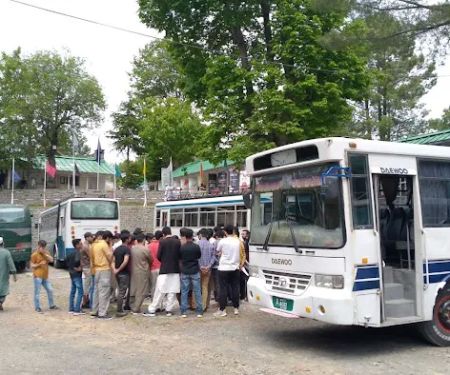 Transport pool uop
5.0 (1 reviews)
Transport pool uop
5.0 (1 reviews)
2F6G+MGX, Road, Lalazar Colony, Peshawar, Pakistan
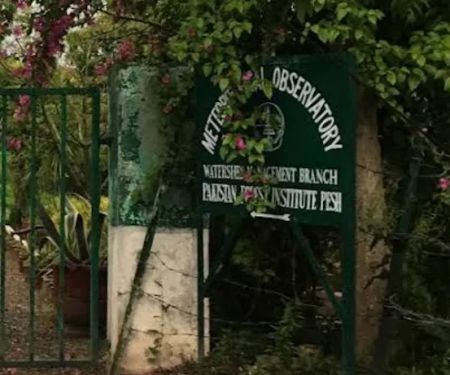 Botanical Garden Department of Botany
4.0 (2 reviews)
Botanical Garden Department of Botany
4.0 (2 reviews)
2F7M+JHF, Forest Coloney Qadir Abad, Peshawar, Pakistan
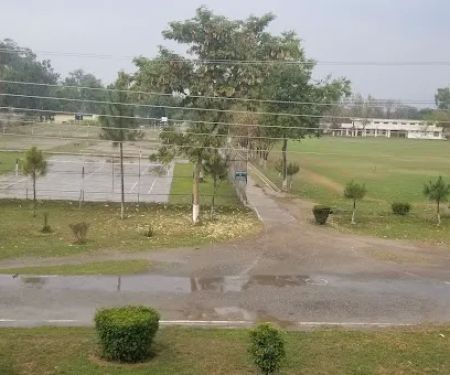 Pakistan Forest Institute (PFI), Peshawar
4.0 (262 reviews)
Pakistan Forest Institute (PFI), Peshawar
4.0 (262 reviews)
2F8Q+94W, Forest Coloney Rahat Abad, Peshawar, Pakistan
 YouTube video
1.0 (1 reviews)
YouTube video
1.0 (1 reviews)
2FJM+2C8, Palosi Rd, Palosi Talarzai Peshawar, 25000, Pakistan
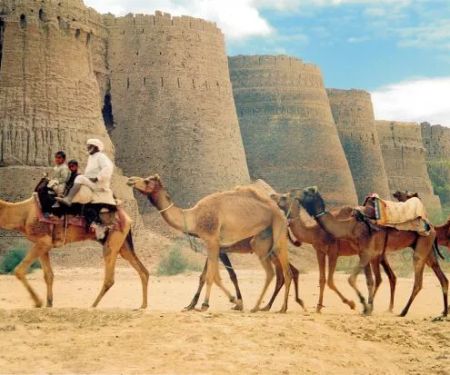 Animal Reproduction Laboratory
0.0 (0 reviews)
Animal Reproduction Laboratory
0.0 (0 reviews)
University of Agriculture, Shah Faisal Town, Peshawar, Pakistan
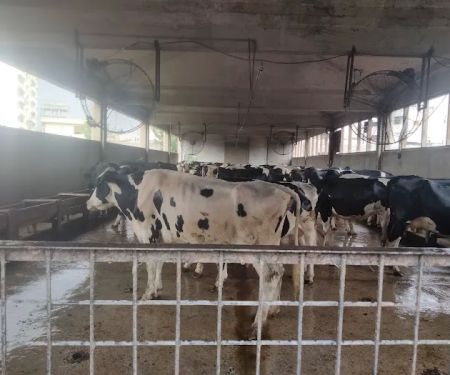 Livestock Research and Breeding farm
0.0 (0 reviews)
Livestock Research and Breeding farm
0.0 (0 reviews)
2F95+RCF, Shah Faisal Town, Peshawar, Pakistan
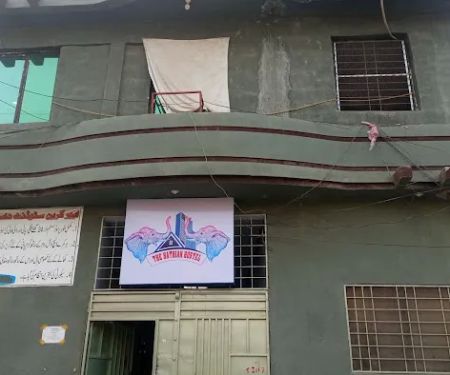 Hatyan hostel
4.0 (3 reviews)
Hatyan hostel
4.0 (3 reviews)
Canal Town Peshawar, Pakistan
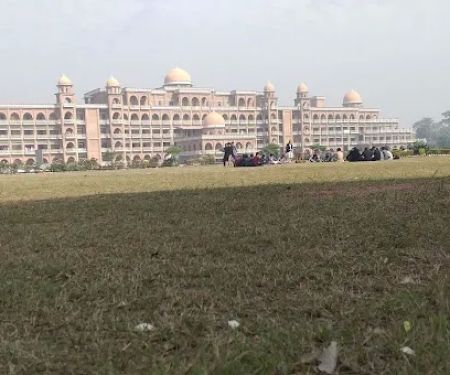 Department Of Electronics
5.0 (4 reviews)
Department Of Electronics
5.0 (4 reviews)
2F6P+2VG, Rd No. 2, Qadir Abad, Peshawar, 25000, Pakistan
Categories
Popular
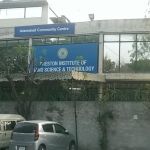 Preston Institute of Nano Science and Technology4.0 (27 reviews)
Preston Institute of Nano Science and Technology4.0 (27 reviews) Govt National High School Saroki0.0 (0 reviews)
Govt National High School Saroki0.0 (0 reviews)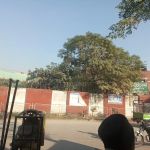 Govt Degree College for Women Dhok Mangtal4.0 (16 reviews)
Govt Degree College for Women Dhok Mangtal4.0 (16 reviews) Government Primary School Aziz abad No 20.0 (0 reviews)
Government Primary School Aziz abad No 20.0 (0 reviews)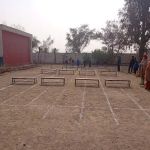 GGPS Dhok Kala0.0 (0 reviews)
GGPS Dhok Kala0.0 (0 reviews)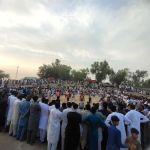 Public Islamia High School Mainwal Ranjha0.0 (0 reviews)
Public Islamia High School Mainwal Ranjha0.0 (0 reviews)Trending Blog Posts
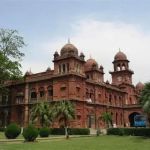 Most In-Demand Degrees in Pakistan 2025 – Top Fields for the Future
Most In-Demand Degrees in Pakistan 2025 – Top Fields for the Future Most In-Demand Degrees in Pakistan – What to Study in 2025 for a Future-Proof Career
Most In-Demand Degrees in Pakistan – What to Study in 2025 for a Future-Proof Career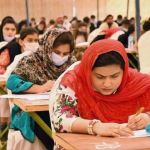 CSS 2025 Registration Deadline Announced by FPSC – Important Information for Aspirants
CSS 2025 Registration Deadline Announced by FPSC – Important Information for Aspirants Pakistan Education Census 2025 to Be Conducted in August: What to Expect
Pakistan Education Census 2025 to Be Conducted in August: What to Expect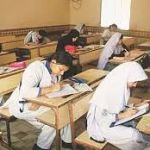 KP Inter Board Results to Be Announced District-Wise: What Students Need to Know
KP Inter Board Results to Be Announced District-Wise: What Students Need to Know CSS 2025 Registration Deadline Announced by FPSC: Key Details and Preparation Tips
CSS 2025 Registration Deadline Announced by FPSC: Key Details and Preparation Tips 